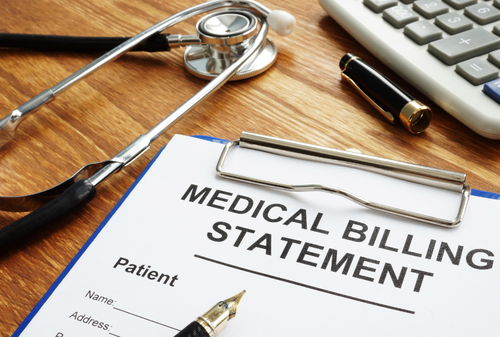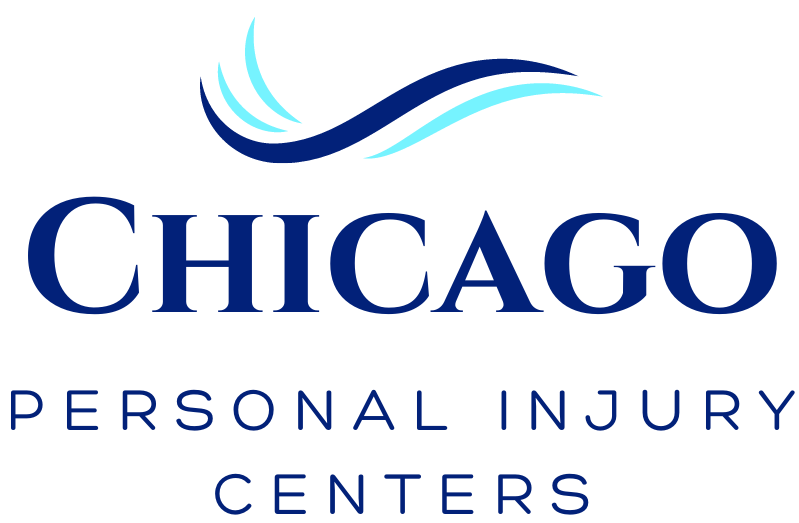After suffering in a personal injury accident, your priority is to get medical care. Medical bills should be the last thing on your mind. However, the medical bills will start to come in and it can be overwhelming. Especially if you have extensive injuries.
In personal injury cases, the at-fault party’s insurance will typically make a lump-sum payment after the conclusion of the case, which can take years.
However, as the personal injury case goes on, the victim of the accident will still need to clear medical bills, including hospital bills, ambulance services bills, primary care physician bills, specialist consultations, diagnostic tests and imaging, prescription medications, rehabilitation services, homecare and follow-up visits.
All these bills can strain your post-accident financial well-being.
In this article, we’ll delve into how you can manage medical expenses after an accident, providing you with practical steps and tips for handling medical bills effectively.
Step 1: Seek Immediate Medical Attention
Always keep in mind that your health is of utmost importance. Your health and safety should be the priority in any post-accident scenario. To this end, seek prompt medical attention to prevent further complications and hasten your recovery. In many personal injury cases, seeking prompt medical attention enhances the speed and effectiveness of recovery.
Moreover, prompt medical attention ensures you attain the crucial medical records you need to file your claim against the at-fault party. Ensure you keep all medical records and receipts, which are crucial in making your claim.
Step 2: Understand Your Insurance Coverage
Generally, the types of insurance that may cover medical expenses include health insurance, auto insurance, and personal injury protection. However, the different types of insurance offer different policy limits as far as covering medical expenses after a personal injury.
As such, you should review your policy to understand the details and coverage limits. If you need any clarification from your insurance provider, just write them a letter or email. Keep the letter/email short, clear, polite, and non-threatening, and ensure you confirm your intention to continue cooperating with the firm.
Step 3: Document Everything
We cannot stress enough the importance of documenting everything regarding your accident and medical bills. Create a dedicated folder for all physical documents and a digital folder for all accident-related documents you receive.
Store all the medical treatments, expenses, and communications with your insurer and healthcare provider. A thorough documentation is essential in calculating fair and comprehensive compensation when the time to settle your case comes.
Step 4: Notify Your Insurance Company
A timely notification to your insurance company about your accident and medical treatment is essential if you want your medical bills covered. In Illinois, you should report the incident within ten days.
While notifying your insurance company about the accident and medical treatment, you should be careful about the information you provide. Keep in mind the insurance company can use your words to minimize compensation.
As such, provide the facts of the accident as straight as possible without going into minute details. For instance, succinctly tell them the date, location, your information, and the at-fault party’s information. An additional tip: always deny the insurance rep’s request to record the conversation.
Finally, keep records of all correspondence with the insurance company.
Step 5: Negotiate Medical Bills
You shouldn’t be afraid to reach out to your healthcare provider for any inquiries regarding your medical bill. Ask for an itemized bill and check for any errors or discrepancies that may result in higher medical bills.
While at it, you can also negotiate with your healthcare provider for more accommodative payment terms and plans. Many healthcare providers are willing to lower the monthly payment rates for personal injury victims, especially when their settlement case is ongoing.
Negotiating for more favorable payment terms can be a huge relief if you’ve experienced lost wages due to your injury. However, you should note that you need to keep your pay current after negotiating terms.
Missing payment might void your agreement, resulting in your medical provider requesting a full and immediate settlement of your bill. To avoid missing payments, consider seeking financial assistance.
Step 6: Explore All Available Resources
When suffering from a personal injury, you should make concerted efforts to minimize your out-of-pocket expenses. Some of the potential resources you can use to cover your personal injury medical care include:
- Health Insurance – Health insurance is the best option to cover medical expenses occasioned by a personal injury, as they can foot the bills until your case is settled. They can cover emergency health services and future medical bills. However, they may have the right to recover their expenses once the case is settled.
- Car Insurance – The next best case is having your insurance cover the medical bills until the case is settled. If your auto insurance has medical coverage or personal injury protection, you can file a claim to cover your medical bill. However, the insurance company can recover the costs once your case is settled.
- Medicaid/Medicare – Medicaid and Medicare are another option you may use to cover medical expenses resulting from personal injury. Medicaid is a joint federal and state program run to help cover medical costs for people with limited resources and income (such as individuals receiving Supplemental Security Income (SSI)). It covers children, seniors, parents, pregnant women, and individuals with disabilities. On the other hand, Medicare is a federal program that provides health insurance for people who are 65 years old or older. It also covered certain disabilities for individuals under 65 years.
- Medical Contingency – Medical contingency is an excellent option for individuals without medical insurance. It allows personal injury victims to receive medical care without incurring out-of-pocket costs as the case is going on. The healthcare provider later recoups their costs after the case is settled. Many healthcare providers will only avail this option to patients if they have a lawyer backing their claim. Even then, they will only avail this option to patients if their legal team is satisfied they can recoup their costs; in other words, they must be confident you will win your case.
- Friends and Family – You may also seek help from your friends and family to cover your personal injury medical bills. Ensure your attorney takes into account the need for your friends and family to recover their out-of-pocket contribution once your case is settled.
- Non-Profit Organizations – You can seek financial assistance from non-profit organizations such as Uchicago Medicine and Shirley Ryan AbilityLab’s Charity Care Financial Assistance Program.
- Patient Advocacy Groups – There are local and national patient advocacy groups that help connect injured patients with medical professionals. An excellent example is the Advocacy for Patients organization, the PSINK Consortium, and Unite 2 Fight Paralysis.
- Seek a Loan – As a last resort, you can consider applying for a loan to cover your current and future medical bills. Unfortunately, medical loans tend to attract high interest. Only apply for a loan if you have no other option.
Step 7: Consider Hiring a Personal Injury Attorney
With mounting medical bills, you might be tempted to make the claim without outside help as a cost-cutting measure. Counterintuitively, making the claim without legal help will only increase the odds of receiving an unfair and low-ball compensation. Retaining and consulting an experienced attorney will help you pursue your rightful compensation and manage medical by negotiating with healthcare providers and representing you throughout the legal proceedings.
However, you can only benefit from a personal injury attorney if you choose the right attorney. With this in mind, review the experience, reputation, track record, and client reviews of your prospective personal injury lawyer.
Step 8: Be Aware of Subrogation Rights
Subrogation describes the right of your insurance company to pursue the at-fault party’s insurance for causing the accident and a subsequent insurance loss. In other words, subrogation describes a situation where your insurance company seeks reimbursement of the medical costs they paid out after you made a claim once your case is settled.
They do this to recover the costs incurred by paying your medical bills. In most cases, the subrogation process is passive for the victim as you will not be actively involved. However, you need to understand the subrogation clauses in your auto and health insurance as it might affect the payout you receive after the settlement.
Consider seeking legal advice to handle subrogation claims effectively.
Step 9: Plan for Long-Term Medical Care
In our experience, recovering from an accident is typically a long process that takes time. As such, we advise our patients to consider the financial implications of ongoing medical treatment rehabilitation. With this in mind, you need to include future medical expenses in your compensation claim.
Moreover, you need to budget for your long-term care by assessing your needs and the cost implications. Consult your healthcare provider if you need clarity on the rehabilitation and medical treatment you need in the future as you recover from your personal injuries.
Finally, explore insurance coverage options, including federal and state health insurance programs for which you can sign up.
Call Chicago Personal Injury Centers Today for Top-Notch Personal Injury Accident Medical Care
Personal injury medical bills are challenging to manage. However, making concerted efforts to be organized and informed and being proactive in managing your expenses will help you better manage your medical bills.
To this end, understand your insurance coverage, document everything, notify your insurance company (if you have applicable coverage), negotiate medical bills with your healthcare provider, and hire a personal injury attorney to ensure they receive the compensation they deserve. You can overcome the challenge more effectively.
If you need further assistance handling medical bills after a personal injury accident, our staff at Chicago Personal Injury Centers are available to help you. Get in touch today by calling (773) 482-5800 to schedule a consultation.
Our Readers also Love to Know More About:
How to Navigate Motorcycle Accident Recovery
Workplace Injuries: Identifying & Proving Your Case
Maximize a Personal Injury Claim: How Injury Treatment Centers Can Help

